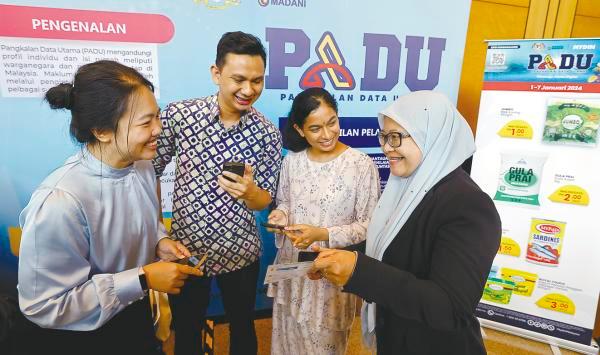MALAYSIA spent RM70.3 billion on subsidies in 2022. The introduction of the Central Database Hub (Padu) at the start of the year was a timely response by the government to address the urgent need to reduce the significant subsidies expenditure.
Padu will serve as the foundation for all targeted subsidies initiated by the government to assist the hardcore poor, B40 households and some segments of M40 households. The goal is to have Padu in place by the second half of 2024, to assist the government in determining targeted recipients.
For decades, subsidies have played a crucial role in Malaysian economic policies, aiming to reduce living costs and promote social welfare. However, with rising global commodity prices and a burgeoning government budget, the issue of subsidies has intensified concerns about its sustainability.
While well-intended, the present blanket subsidy approach has several limitations. Firstly, it suffers from inefficiency. Subsidies frequently benefit all income levels, including the rich, leading to misallocation of resources. As a result, targeting the most vulnerable becomes a costly endeavour.
Secondly, there is a risk of market distortion. Artificially low pricing can disrupt market signals, preventing efficient production and deterring investments in key industries, such as renewable energy.
Lastly, there is the fiscal burden. The rising cost of subsidies places a strain on the government budget, reducing resources for important areas such as education and healthcare.
Subsidy rationalisation, although a complicated and frequently contentious concept, has the ability to influence Malaysia’s economic trajectory.
Subsidy rationalisation poses significant challenges, including public resistance, concerns about price hikes and the potential for political backlash, all of which are legitimate concerns. However, the long-term advantages outweigh the short-term drawbacks.
An efficient economy draws investments and encourages innovation, resulting in higher living standards for all. Decreasing government spending will enable increased investments in vital sectors while simultaneously reducing dependence on debt.
Justifying subsidies does not imply abolishing them completely. Instead, it involves re-evaluating the criteria and beneficiaries to ensure they are directed appropriately.
Targeted assistance: By transitioning to targeted subsidies based on income or specific requirements, we can ensure that those who need help receive it.
Price changes: Gradual price adjustments can reduce the total cost of subsidies while softening the impact on vulnerable groups.
Investing in alternatives: Savings from rationalisation may be used to fund public services, infrastructure and long-term solutions that can benefit the entire population.
One notable aspect of Padu is that its development was solely undertaken jointly by civil servants from the Economy Ministry, Statistics Department and Malaysian Administrative Modernisation and Management Planning Unit.
This team of civil servants has been working tirelessly behind the scenes to gather relevant data from more than 400 government databases around the nation. Among the notable agencies are the National Registry Department, Social Welfare Department, Inland Revenue Board, Employees Provident Fund and Social Security Organisation.
Now is the time to revisit the “whole-of-government” approach. The collaboration of various government ministries and agencies in sharing and streamlining their current databases at the federal and state levels will determine Padu’s success.
Furthermore, government officials throughout the country must engage to help vulnerable groups, especially in rural and peri-urban areas, register or update their information on Padu.
The government’s oversight is necessary to guarantee data security and confidence, notwithstanding its significance.
Despite early failures and challenges, initial defects in the system must be addressed promptly for the database to accomplish its intended purposes effectively and efficiently.
The government must also guarantee information transparency to generate public trust and confidence in the system.
In the long run, initiatives such as Padu must be dynamic, constantly examined and modified.
Padu will provide the groundwork for a universal protection system to prepare for an ageing society.
For example, someone earning a T20 salary at the age of 55 today may require assistance or support when their income drops once they retire.
Furthermore, adopting such an approach not only facilitates more precise subsidy delivery but can also help boost income levels by aligning employment opportunities with improved compensation.
Subsidy rationalisation is a critical step towards a more sustainable and equitable Malaysia. It necessitates careful preparation, open communication with the public and a commitment to providing targeted assistance to the most vulnerable.
The government should ensure that its subsidies accomplish their intended goals, fostering a strong economy that benefits all citizens.
The writer is a senior training consultant at the National Institute of Public Administration. Comments: letters@thesundaily.com








